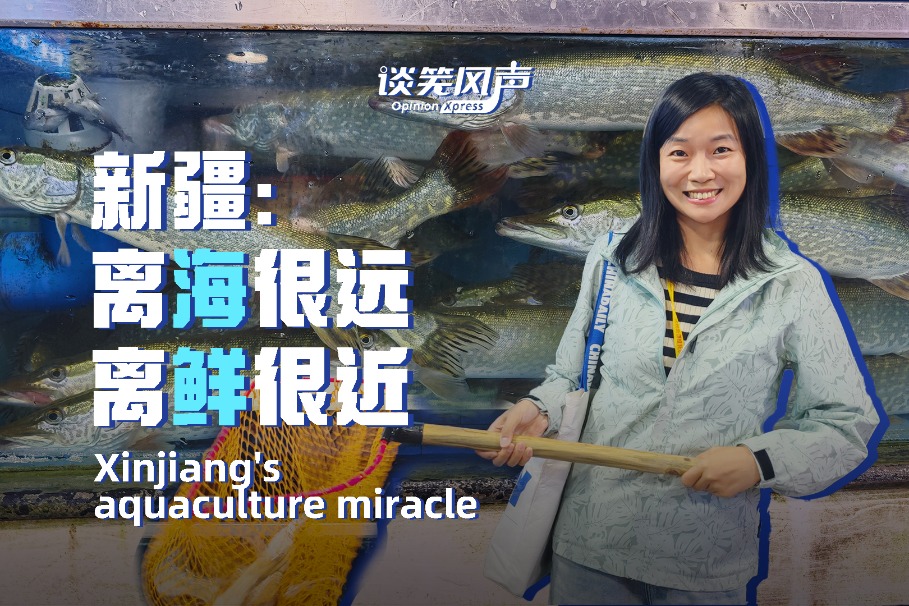China-Vietnamese fishery co-op needs new perspectives


China and Vietnam officially signed an Agreement on Fishery Cooperation in the Beibu Gulf on Dec 25, 2000, which was aimed at sustainable management of fishery resources in the sea areas of the gulf. The bilateral agreement took effect on June 30, 2004 and ended on June 30, 2019. It was then extended to June 30, 2020 when it formally came to an end.
During the 15 years in which it was implemented, the agreement has played an instrumental role in maintaining stability and order in the gulf. In accordance with the agreement, China and Vietnam have conducted broad fishery cooperation in the gulf, such as joint fishery inspections, marine protection and the regulation of fishing activities, which have greatly contributed to halting the depletion of the fishery resources and creating a coordinated and friendly relationship for fishing activities between China and Vietnam.
Although the old agreement has expired and new arrangements are still being negotiated, the bilateral practical cooperation in the gulf cannot be halted. But there is a need to think of new perspectives and ideas as there are some unresolved problems in the current fishery cooperation between the two countries.
Problems to resolve
Before proposing applicable and feasible suggestions for further cooperation in the gulf, it is necessary to objectively assess the outcomes of the previous endeavours, so as to identify the drawbacks and problems encountered in the bilateral cooperative activities.
First, unscientific aquaculture results in ecological deterioration. Facing the depletion of fishery resources, both countries encourage aquaculture to meet the demand for sea fish. But the negative effects are also obvious. The aquaculture, which is economic benefit oriented, imposes contentious impacts on the ecological equilibrium in the gulf, because although higher aquaculture production relieves the pressure on wild fish stocks, small-scale non-industrial fishes are gradually replaced by species with high economic and nutritional value. The biodiversity of the marine ecosystem is thus destroyed. Moreover, aquaculture's over dependence on fishmeal and trash fish for feed raises ecological risks, as it leads leading to eutrophication. As a result, many species die and the delicate balance of the ecosystem is destroyed.
Second, uncurbed IUU (illegal, unreported and unregulated) fishing and overfishing activities are a threat to fishery resources. Despite intensive inspections, IUU fishing activities and over-exploitation of fishery resources are still rampant, particularly by Vietnamese fishermen. Vietnam was even given a "yellow card" by the European Commission. Such activities threaten the sustainability of wild fish stocks in the gulf.
Third, fishing disputes sometimes occur between Chinese and Vietnamese fishermen. Illegal fishing activities have led each side to accuse the other of infringing the agreements, and have on occasion resulted in deadly clashes.
Fourth, onshore re-employment of fishermen remains a challenge. Under the regulation of the agreement, a considerable number of fishermen both in China and Vietnam gave up their traditional life on the water and began land-based activities. But the transition is not easy, and there is a serious challenge concerning the re-employment of people who used to solely depend on fishing. Creating job opportunities and increasing the living standards of these ex-fishermen remains a big task for both China and Vietnam.
New perspectives in bilateral fishery cooperation
After the expiration of the agreement, competent agencies of both sides will manage the operation of fishing boats in the gulf in accordance with the delimited line as defined in Article 2 of the agreement on the delimitation of the territorial seas, exclusive economic zones, and continental shelves in the Beibu Gulf between Vietnam and China.
Nevertheless, facing the common challenges, the bilateral fishery cooperation will not stop before new arrangements are adopted. However, it is clear that new perspectives are needed.
First, joint fishery patrols are still necessary to monitor the maritime boundary and curb IUU. There is accumulated consensus and confidence between Vietnam and China that joint fishery patrols are essential in collecting information about violations by fishing boats and instructing fishermen to abide by relevant laws and regulations set in the maritime boundary agreement in the gulf. Currently both sides need to adopt measures to continue this type of activity. More frequent contact, communication and coordination between both coast guards should be encouraged. In addition, other forms of supervision and communication can also be considered, including a hotline, satellite monitoring and high-tech surveillance.
Second, cooperation in aquaculture and the fishing industry needs greater impetus. Under the pressure of depleting fishery resources and fishermen’s shift to non-traditional fishing activities, aquaculture has become more and more important. In this regard, China-Vietnamese aquaculture cooperation should focus on the production of sea food with high economic value such as cold-water fish, lobsters, and snails. With the expansion of aquaculture, cooperation could also be expanded to cover the fish processing industry, such as fish canning industry and fish feed production. In addition, due to the pandemic, safety and security in seafood transportation has become a hot issue. Seafood delivery has thus emerged as a new field for bilateral cooperation. The construction of a fishing industry chain will not only benefit the national economy of both countries, but also create job opportunities for fishermen in transition.
Third, cooperation in marine science is essential to protect fishery resources in the gulf. Fishery resources in the gulf are rapidly being depleted, hence, increased protection cannot be delayed. For the future and sustainable development of the gulf, both China and Vietnam have an obligation to take unilateral and bilateral actions to regulate fishing and aquaculture activities. In addition, extra attention must be given to the livelihoods of the fishing communities along the gulf coasts. Fishermen’s livelihoods, sustainable utilization of fishery resources and coastal economic development are three entwined factors influencing the effectiveness of marine cooperation. For more effective marine protection, cooperation in marine science is indispensable, not only cooperation in scientific research to improve productivity in the sea for economic purposes, but also cooperation in marine ecology, resource management and marine biological diversity for non-economic purpose.
The Beibu Gulf is equally important for China and Vietnam, despite the absence of a renewed legal framework for fishery cooperation, both countries should contribute more wisdom to strengthen their practical cooperation. Such efforts would help create a solid foundation of mutual trust for further cooperative arrangements to promote the sustainable development of the gulf in the post-pandemic period.
The author is a postdoctoral researcher at National Institute for South China Sea Studies.
































